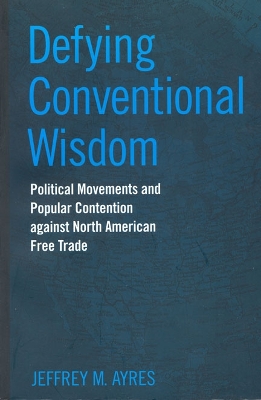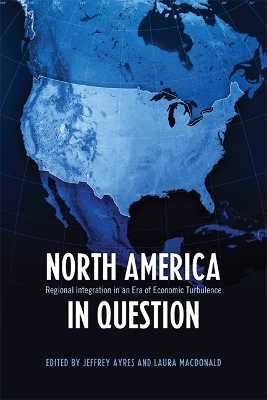Studies in Comparative Political Economy and Public Policy
2 total works
This book offers a crisp and thoughtful account of political phenomena still fresh in the minds of Canadians, and with continuing relevance to policy-making processes. As the first major work on the origins, strategies, and activities of movements and coalitions that arose in Canada and spread across North America to oppose free trade, it captures an important developmental period in Canadian political life. Focusing on an analysis of the Action Canada Network, Jeffrey Ayres adopts a political-process model to link the emergence of popular sector movements and transnational networks to constraints posed by the Canada-US FTA and NAFTA. His extensive use of popular writings and interviews highlights the personal reflections of coalition members and provides an intimate perspective on their strategies and actions. As a contribution both to the study of recent developments in Canadian politics and to our understanding of emerging transnational contention in North America, Defying Conventional Wisdom will appeal to readers across a wide spectrum of interests and backgrounds.
University of Toronto Press gratefully acknowledges that this book was sponsored in part by the Association for Canadian Studies in the U.S. and by the Government of Canada.
University of Toronto Press gratefully acknowledges that this book was sponsored in part by the Association for Canadian Studies in the U.S. and by the Government of Canada.
Can North America survive as a region in light of the political turbulence provoked by the global economic crisis? Or have regional integration and collaboration reached a plateau beyond which disintegration is likely? In North America in Question, leading analysts from Canada, the United States, and Mexico provide theoretically innovative and rich empirical reflections on current challenges sweeping the continent and on the faltering political support for North American regionalism. This collection begins by reviewing the recent trajectories and events that have undermined North America's trilateral relationship, then addresses concerns that go beyond NAFTA and economic issues, including labour, immigration, energy, the environment, quality of citizenship, borders, women's and civil society struggles, and democratic deficits. Although demonstrating that many informal dimensions of North American integration continue to flourish, the contributors assess whether the future will hold greater economic instability, security crises, and emerging bilateral relationships.

